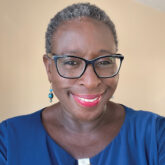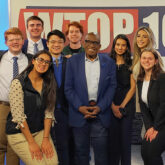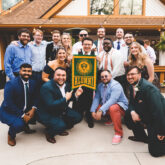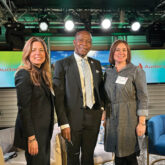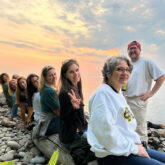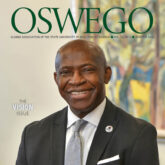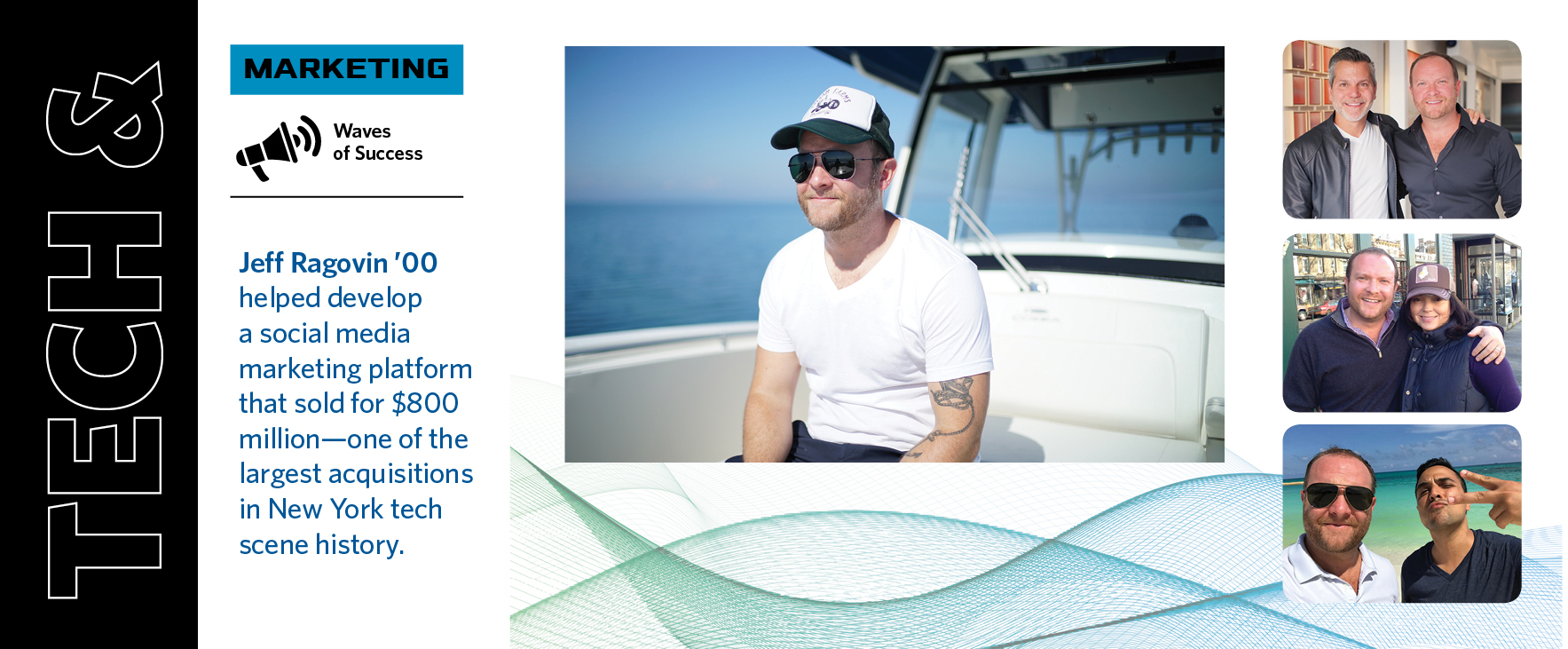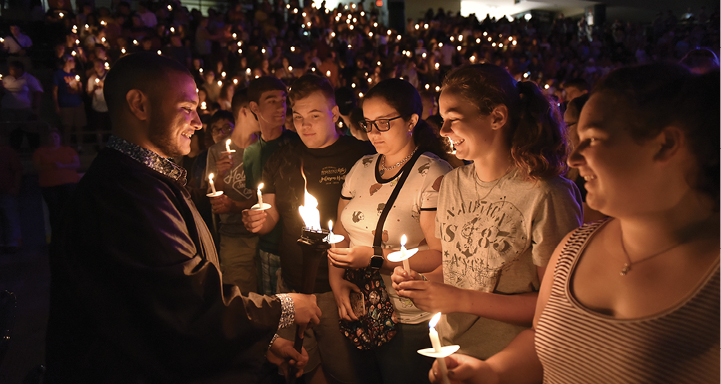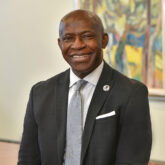Securing Our Digitally Connected World
 For the past 20 years, Dane Coyer ’80 has lived in the future.
For the past 20 years, Dane Coyer ’80 has lived in the future.
“In the startup world, I have to be thinking about what’s going to happen next. What technology do we need, what new problems will need to be solved, what new problems will be created by new technology? I find it really fascinating and fun to live in the future like that.”
And the biggest challenge of today, he said, is cybersecurity.
He joined Netherlands-based Eclectic IQ to help large organizations like governments, financial services companies and healthcare systems protect themselves from cyberattacks and nefarious online behaviors. He recently launched the North American subsidiary for the company and now serves as general manager-North America.
“These organizations are awash in data but are starving for intelligence,” he said. His company provides IT staff with software that allows organizations to contextualize the information and make sense of it.
“Our product looks for relationships between pieces of information to identify patterns or trends in the things that are happening,” he said. “It’s like putting more and more pieces into a jigsaw puzzle and all of a sudden you have a picture.”
As the “Internet of things” takes a stronger hold, more people and more systems will be at risk of being attacked online.
“The Internet of things means that everything is going to have a networking and processing capability,” he said. “Your phone, a drone, your thermostat in your home and even the food growing in a farmer’s field—thanks to sensor technology—are part of the Internet of things. If they’re part of the Internet, they’re vulnerable to attack.”
Despite the risk, Dane said he gets frustrated by people who lament such progress.
“I love disruption,” he said. “[Industrial Arts Professor] John Belt used to say, ‘Jump up and down, stick a finger in your eye. If you feel comfortable, you feel nothing.’ It was his way of talking about disruption. Has anything ever advanced society by just being comfortable?”
The Oswego native said although he doesn’t use much of his industrial arts coursework in his work today, his education forced him to take abstract, complicated concepts and boil them down into an idea that he could explain to a junior high student.
“That skill has served me very well,” said Dane, who was a vice president of IBM before pursuing a career with startups, including as chief executive officer of SpaceCurve and president and chief executive officer of Wavestate Inc. “I’ve reinvented myself several times throughout my 40 years of working, but the ability to take a technical concept and communicate it effectively has been invaluable throughout my career.”
—Margaret Spillett
Hot Topics Now and in the Future:
• Artificial Intelligence/Automation: There are several schools of thought about whether this is going to be a good thing or a bad thing. But it is going to happen, and it is going to displace tons of workers who will need to get new jobs. There’s going to be social disruption, and what will that mean?
• Augmented Reality/Virtual Reality: People will have difficulty determining what’s real. Check out deepfake. With technology now, you can modify a video clip or photo, or even create a whole new human image that actually looks like someone—say a president or a famous athlete. It’s completely fake, but looks legitimate. What will that mean to copyright and privacy issues?
• Autonomous Vehicles: This is only a few years away—cars and drones. Drones will be able to drop off an online purchase at your front step, or apply pesticide or water a single plant in a farmer’s field instead of a crop-duster spraying an entire field that may or may not need it.
• Blockchain Technologies/Cryptocurrencies: These will be necessary to authenticate images and transactions.
• Cybersecurity: As more things become connected to the Internet, we are more vulnerable to cyberattacks. This is the biggest problem we face today.
—Dane Coyer ’80
Future Predictions:
“Everyone thinks that technology has accelerated a lot recently, but I think we’ve only seen the tip of the iceberg. I think things are going to accelerate so much faster than we expect—in a nonlinear fashion. The rate of change is going to scare some people.”
—Dane Coyer ’80
Staying One Step Ahead in Electronic Warfare
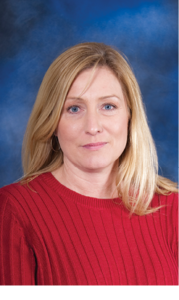 Margaret McCormick M’17 works to protect military bases and soldiers from those who use technology as a weapon.
Margaret McCormick M’17 works to protect military bases and soldiers from those who use technology as a weapon.
“It’s a pretty powerful feeling knowing that the work you’re doing is helping to save lives. Our team is really motivated by the mission. It means something to them. I continue to be impressed every day by the dedication and devotion of our team to solving the most challenging problems that face the warfighter.”
Margaret is the director for the electronic warfare portion of the counter-unmanned aircraft system programs at Central New York research and development firm, SRC Inc.
With its corporate headquarters in Cicero, N.Y., SRC has honed a reputation for being at the cutting edge of electronic warfare, air surveillance and target detection. Just recently, the U.S. Air Force awarded SRC a $57.5 million contract to provide systems that detect, identify and defeat enemy drones.
“Counter systems have always battled to stay one step ahead,” Margaret said. “As methods for defeating different technologies are introduced, the enemy is working to exploit the next new technology. We need to anticipate what is coming next and focus efforts on developing the counter to it. It’s a continuous cycle.”
Margaret has worked for SRC for 25 years and earned an MBA in 2017 through a SUNY Oswego partnership with SRC. She joined the electronic warfare group as a software engineer doing development for some of its early counter systems, which date back to providing Counter Improvised Electronic Devices (CIED) in the early 2000s.
“The technology used in CIED was a natural fit for what is required in countering unmanned systems so our CIED systems were modified for this mission,” Margaret said. “The concentration early on has been on drones, but the ability to operate equipment remotely or autonomously has moved quickly to other platforms (ground based and maritime applications), and as an organization we have resources that are devoted to those technologies as well.”
As director, Margaret is responsible for overseeing product development, managing program execution and developing new technologies and business. Some of the work being done at SRC includes incorporating machine learning and artificial intelligence into SRC’s systems. The major focus in this area is the training of software to analyze electrical signals that are received by the system to aid in identifying the type of device being operated.
“It’s just the beginning of where we will go with these systems regarding machine learning,” Margaret said.
Margaret holds bachelor’s degrees in business management and marketing from Ithaca College, and in computer information science systems from Columbia College. And while she is a self-proclaimed tech junkie—“access to information at your fingertips whenever you need it is amazing”—she still finds time to disconnect.
“My husband and I enjoy spending time in the summer in the Thousand Islands, boating and golfing. In the winter time we like to ski at various mountains across New York,” the Franklinville, N.Y., native said. “It’s important to stay active.”
—Eileen Moran
Future Predictions:
“I think we’re going to see more machine learning in both unmanned aerial vehicles and counter systems. This will be game changing as each side becomes more intelligent. Instead of focusing all of our efforts on understanding how to defeat a particular technology, we need to be working on making our systems smarter so they can eventually make decisions for defeat autonomously. ”
—Margaret McCormick M’17
More from Fall 2018
Tech & Marketing
Waves of Success A passion for weather and water led New York City native Jeff Ragovin ’00 to the shores of Lake Ontario. …
Rankings Round-Up
Top Regional Universities in the North SUNY Oswego has once again earned a top 50 ranking in the 2019 “Top Regional …
Welcoming Torchlight Ceremony Celebrates New Students, Most Diverse Class in History
College President Deborah F. Stanley, student speaker Boni Quatroche ’19, Student Association President Omar van Reenan ’19, Victoria Kammer ’20, faculty and staff …

